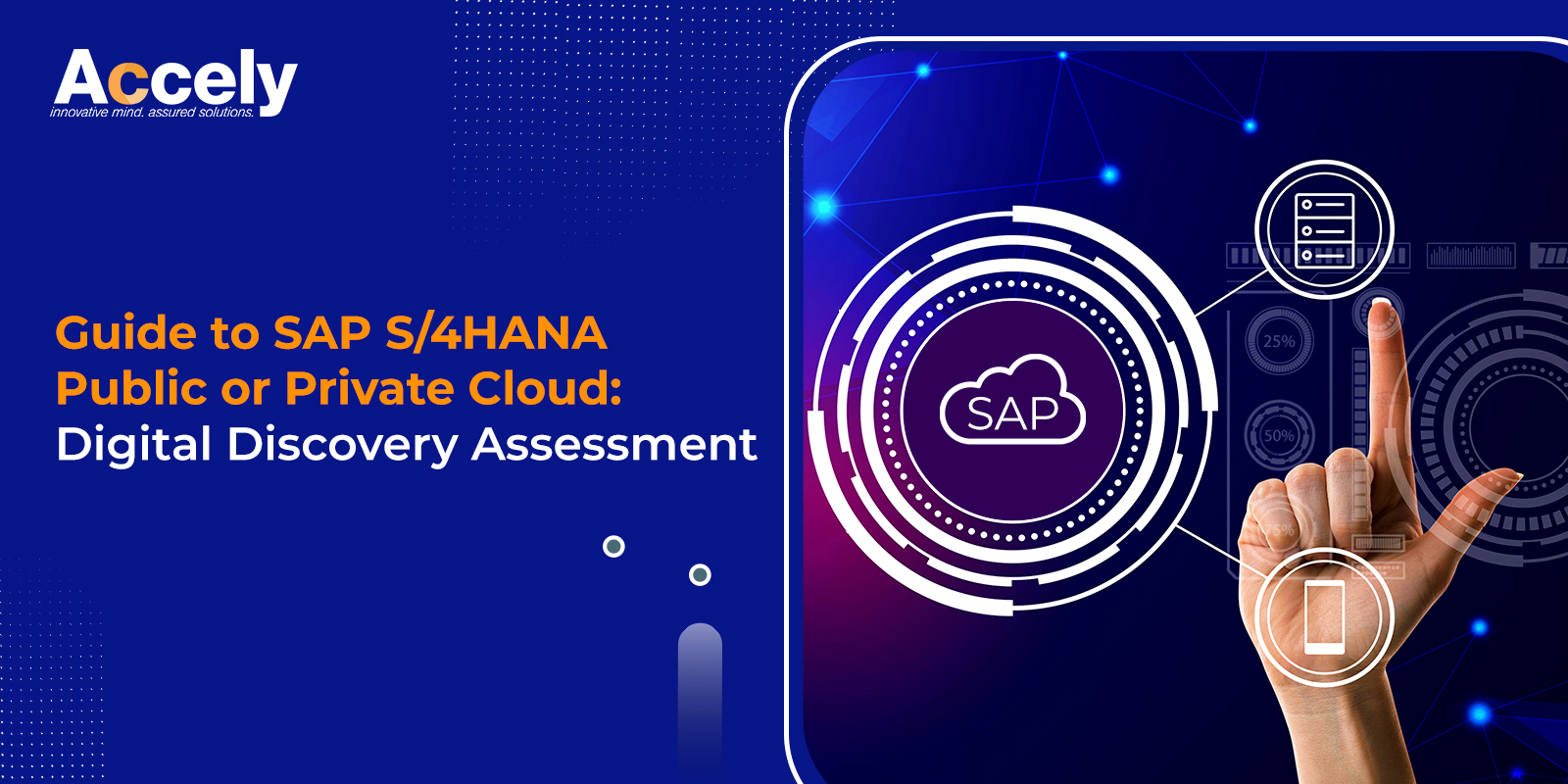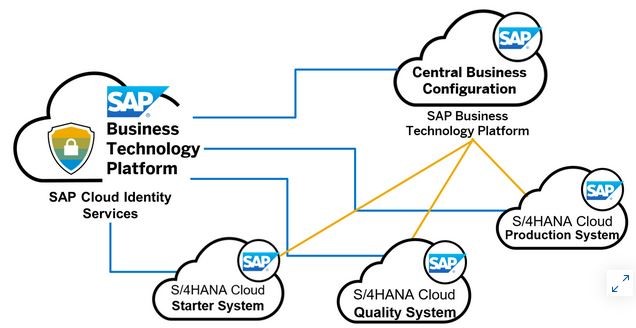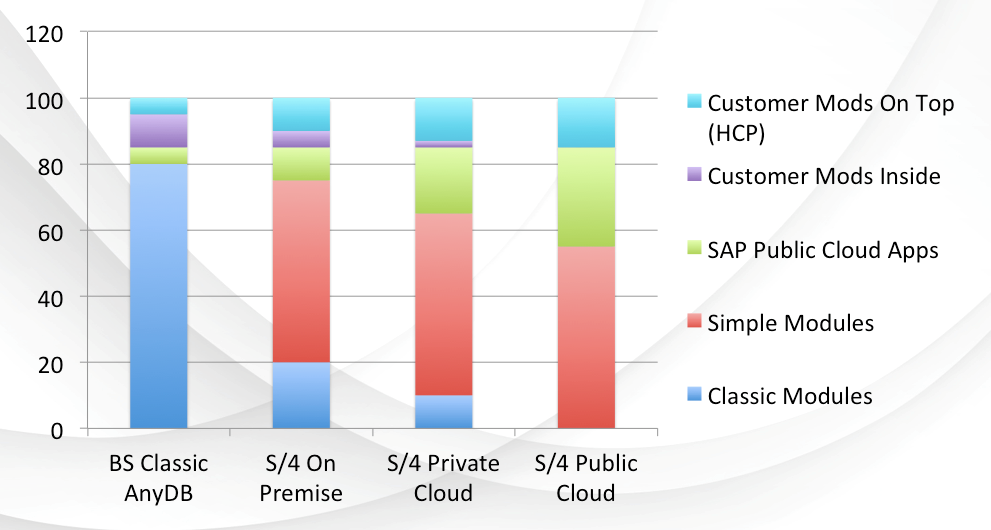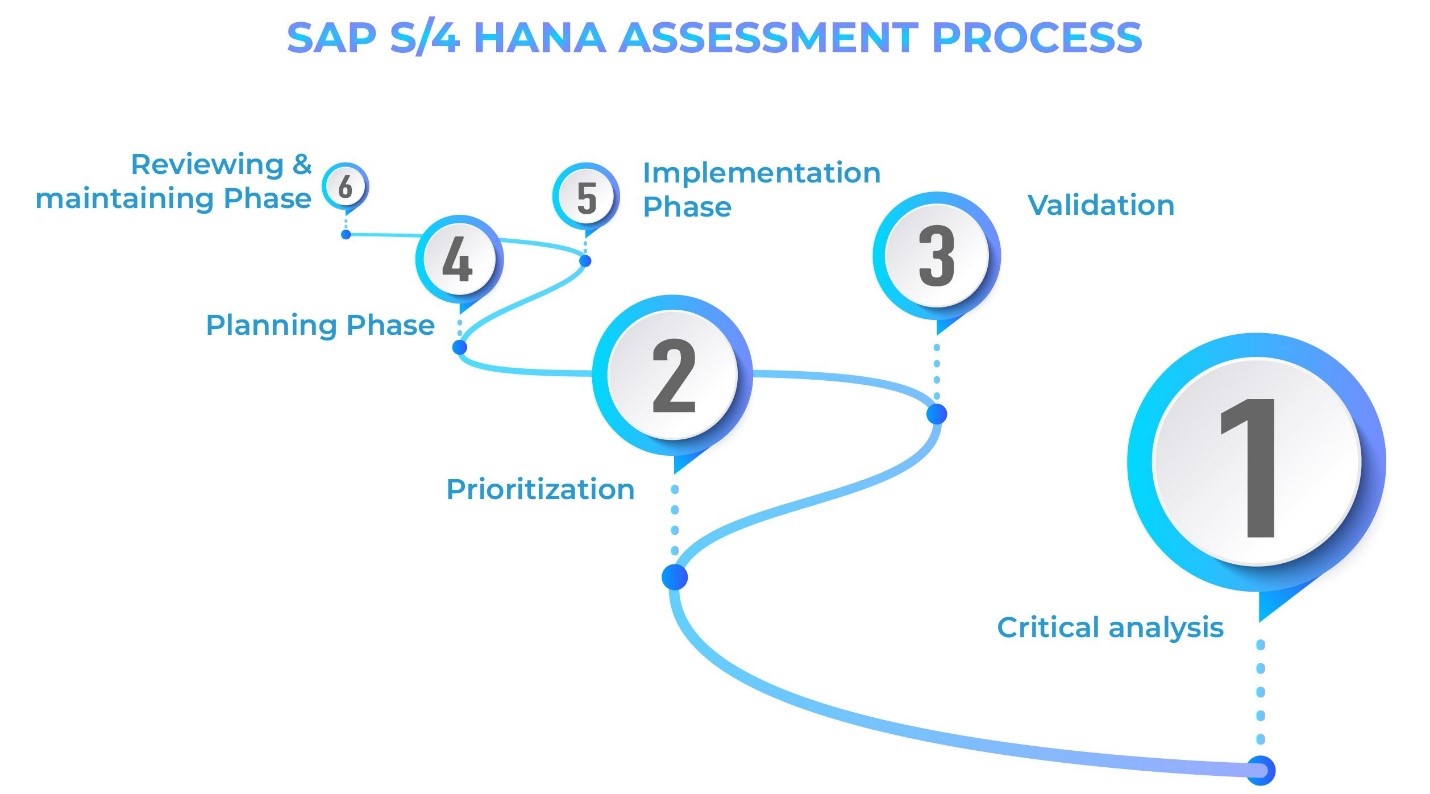Guide to SAP S/4HANA Public or Private Cloud: Digital Discovery Assessment
28-Feb-2023
SAP has grown to become one of the leading ERP providers catering to all types and sizes of businesses. The platform keeps evolving at an exponential rate to serve different audiences. The most popular product that this ERP solution has recently introduced in the market is SAP S/4HANA. The company launched the cloud version of SAP S/4HANA, making all functions of its on-premise version accessible to the users. Plus, you get all the benefits of using its cloud variant, which results in better scalability, improved production, streamlined management, and cost reduction.
From reporting just 370 users in 2015 to over 20,000 users in the second quarter of 2022, the number of users of SAP S/4HANA has increased exponentially, especially after people started realizing the benefits of this enterprise resource planning solution.
SAP is useful for all types of business—from startups looking to expand their businesses to large-scale corporations planning to digitize their workflow. To cater to the growing needs of these customers, SAP introduced two versions of SAP S/4HANA—the public and private editions.
How do you choose which is better and more suitable for your business? There’s no denying that both offer excellent benefits and are much better than the on-premise variant, but each edition is packed with unique features and offers a wide range of benefits. In this post, we are going to discuss the details of private and public clouds.
Source: https://blogs.sap.com/
Private and Public Cloud Edition: All You Should Know
To get a better picture of the differences between the two editions, you first need to understand what these models are and who should use them.
Public Cloud
The public cloud has a shared architecture handled by third-party service providers. Since anyone can access the services on the internet, the public cloud is available at a comparatively lower cost than its private counterpart. The biggest advantage of the public cloud is that it allows you the ability to access unlimited features at a lower cost and without maintaining a complex IT infrastructure.
The solution makes sense for small businesses, especially startups, that don’t have the in-house technical expertise to manage day-to-day technical operations. It’s a practical solution for businesses that are okay with not getting advanced control over the cloud infrastructure but want all the benefits of SAP.
Private Cloud
A private cloud is another dedicated business solution where a third-party vendor manages the entire IT infrastructure. The only difference is that the private cloud is for large-scale businesses that do not want other users to share the same cloud IT service for storing or accessing data.
Simply put, only you and the people you have granted permission to access can use the resources on the private cloud. It’s more of a single-tenant infrastructure that seems pretty useful for businesses that work in sensitive sectors, such as healthcare companies or finance sectors. A private cloud is not just for large-scale corporations, but any business that works in the compliance-based industry needs a private cloud to get better control over its IT infrastructure.
Source: https://blogs.sap.com/
SAP S/4HANA Public and Private Cloud
The public edition of SAP S/4HANA is a multi-tenant version that’s controlled and managed by SAP. It’s perfect for beginners that are ready for SAP S/4HANA migration from the on-premise version to the cloud. The public variant is also useful for those looking to scale quickly from on-premise SAP S/4HANA.
If SAP S/4HANA public version doesn’t sound promising enough, you can move to the SAP S/4HANA private edition, which is managed by SAP or SAP-approved companies, like Google Cloud or Microsoft Azure. For medium and large-scale companies that do not want a shared cloud infrastructure or those looking for more customization options for their ERP solution, the private edition is the most viable option.
Fortunately, both versions are feature-packed and known for their exciting range of benefits that set them apart from other ERP tools. For instance, with each SAP S/4HANA, you get a digital assistant, an AI-powered bot that streamlines manual, repetitive jobs, and detailed analytics that give you insights into different areas of your business.
All these functionalities make it easy for SAP users to make data-driven decisions, reduce human errors, and manage complex processes. The biggest difference between the two is that the private edition offers more customization options and third-party integrations, which streamline your complex business processes.
However, most companies choose the public edition, as they are getting all benefits of SAP S/4HANA at a much lesser cost and with quick implementation.
How Much do they Cost?
You can get a quote from SAP based on your requirements. Usually, the private cloud edition of SAP S/4HANA costs more than its public counterpart, as the company charges higher for offering a dedicated infrastructure. If you are on a small budget, the cloud public edition seems the best choice.
Not only is it a cost-friendly alternative to the private cloud edition, but it’s also easier to implement and has simple configurations that do not require any technical expertise. If you want to take your on-premise ERP solution off the ground without any hassle or in a shorter period than usual, SAP S/4HANA public version is your best bet.
Source: https://www.lmteq.com/
SAP S/4HANA Assessment
SAP S/4HANA assessment is a process used to identify and deploy improvements in the ERP solution. It helps you determine the current status of your SAP solution and figure out the areas that need improvement. The process is divided into three phases – planning, implementation, and maintenance.
A thorough assessment gives you insights into the function of your SAP S/4HANA software, how it helps streamline management operations, and what kind of changes it requires. Based on this, you can migrate your on-premise SAP S/4HANA data into the public or private cloud edition.
Hope you have got an idea of SAP S/4HANA public and private editions.














